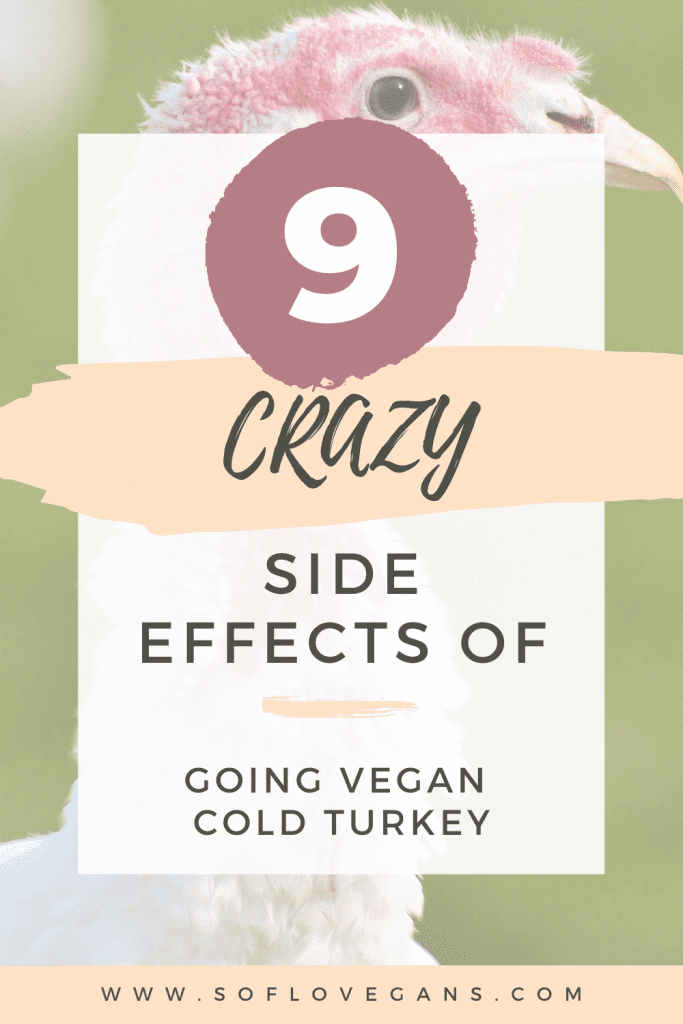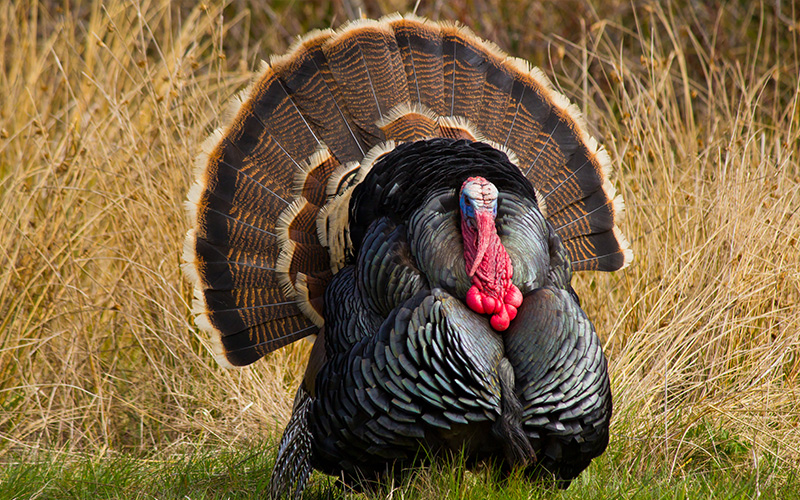The Cold Turkey method of going vegan keeps things pretty straightforward by eliminating the second-guessing. Dropping all meat, poultry, fish, dairy, and eggs from your diet overnight can be challenging but also quite rewarding. Along with lowering your environmental footprint and aiding a cruelty-free life for animals, a meatless diet brings you a lot of substantial health benefits. It can also have a profound effect on your personal and social life. If you’re thinking about making the switch, here are 9 side effects of going vegan cold turkey that you should know about.
What Does It Mean to Go Vegan Cold Turkey?
There are two ways to go vegan- the “cold turkey” approach and the “easing into the vegan diet” approach. Both these approaches are quite opposite of one another. Going vegan cold turkey means getting rid of all animal products from your diet overnight as opposed to gradually introducing the vegan diet. The immediate cold turkey method allows you to completely focus on the process of veganism without second-guessing. It keeps you busy with all the preparation and research for going vegan and you have little time to focus on other food cravings. If you’re someone who needs to take immediate action when making a decision before you change your mind, this method is the one for you.
Side Effects of Going Vegan Cold Turkey
1. Boosted Energy
Heavy meat-based meals overwhelm your digestive system, sucking all the energy out of you. A vegan diet makes you feel lighter and full of energy within the first week itself since digestion gets naturally easier. Vegan foods such as bananas, avocados, hummus, brown rice, and nuts are all great sources of energy. A vegan diet is also shown to improve the quality and quantity of your sleep, reducing tiredness and fatigue.
Make sure to consume more quantity of vegan food to get the same amount of energy. You should track your food consumption in the initial days to make sure you’re getting enough calories.
2. Healthy Weight Loss and BMI
Research has linked meat consumption to the growing obesity problem in the United States. A vegan diet on the other hand has proven to assist with significant weight loss while keeping you fuller longer. Since plant-based meals are typically less calorie-dense than their animal-derived alternative, they work well for controlled weight loss. Going vegan is a sustainable way to lose weight if you build a good routine, diet plan, and eat healthy vegan foods. This also results in a lower body mass index, which is a measure of how your weight compares to the healthy range for your height.
The key is to focus on nutrient-dense foods instead of empty calories. Do not get carried away by the vegan junk food flooding into the market. Just because they’re meatless does not make these processed foods healthy.
3. Improved Skin
The near-immediate good that the vegan diet does to your skin can be a propelling side effect of going vegan. Animal products, especially dairy, are known for being bad for your skin. A vegan diet rich in fruits and vegetables can offer a range of benefits for your skin. They contain high levels of antioxidants which play a vital role in preventing premature aging and giving the skin a radiant glow. Even your hair can recover over time, and become visibly stronger and shinier. There is considerable research proving that whole, plant-based foods improve common skin conditions such as acne, fine lines, and inflammation.
However, stay clear of vegan diets based on processed junk food or snacks. They offer little to no benefit for your skin or hair and might even make your condition worse.
4. Improved Digestive Health
Meat has been suggested to cause constipation along with other bowel problems since it is one of the most difficult foods for the human body to break down and digest. According to research, following a plant-based diet can be effective for healthy and regular digestion and bowel movements.
Plant-based foods are rich in fiber which is the best fuel for the gut bacteria that live in your digestive tract. When properly balanced, these microorganisms called microbiomes, promote a healthy digestion process, along with the immune system, bowel movements, metabolism, and hormones that help with appetite regulation. When these microbiomes are unbalanced, things can get out of place. A diet consisting of a variety of whole grains, legumes, vegetables, and fruit increases the diversity of your gut microbiota, and the more diverse they are, the better.
5. Lower Cholesterol
The leading cause of dietary cholesterol in Americans is meat. High cholesterol increases the risk of heart disease A systematic study has shown that vegans typically have lower cholesterol than those who consume meat and dairy. Eating plenty of plant foods is essential for managing raised cholesterol. Consume fruits, vegetables, whole grains, beans, peas, lentils, nuts, etc., and replace saturated fats with plant-derived unsaturated fats found in olive oil, rapeseed oil, sunflower oil, corn oil, soya oil, peanuts, nuts, seeds, and avocados to regulate your cholesterol levels. This way of eating helps you consume more beneficial fiber that helps in reducing the absorption of cholesterol into your bloodstream and limiting saturated fats that can contribute to higher LDL cholesterol levels.
6. Lower Blood Pressure
Research suggests that a plant-based diet substantially lowers blood pressure. Patients with high blood pressure levels are warned to stay away from certain meats, which may worsen the problem, and recommend increasing vegetable, fruit, nuts, and whole-grain, legumes, nuts, and seeds intake instead. Adding plants to your diet, and cutting back on meat and dairy can be beneficial for these patients.
The DASH diet includes fruits, vegetables, and whole grains and limits sweets, saturated fat, and sodium. This diet has proven most effective for lowering blood pressure due to the wealth of micronutrients contained in plant foods. It lowers both systolic and diastolic blood pressure more effectively than any other diet.
7. Reduced Risk of Chronic Disease
Red and processed meat are the culprits for increasing the risk of coronary artery disease and type 2 diabetes. Additionally, dairy has been linked to a multitude of health problems, including type 1 diabetes, multiple sclerosis, colon and breast cancer. Plant-based nutrition is able to reverse these conditions in a separate study. It has proven effective in treating Crohn’s disease, controlling type 2 diabetes, and assisting with arthritis.
Inflammation contributes broadly to the development of many chronic conditions. In chronic inflammation, immune cells become dysregulated and lose self-limiting nature. The vegan diet increases the levels of omega-3 fatty acids and serum levels of carotenoids and isoflavones which are associated with lowering inflammation. Lower chronic inflammation means a lower risk of chronic disease.
8. Increased Happiness
Vegans usually experience improved mood states with reduced stress and anxiety. Eating anti-inflammatory vegan foods like fruits, vegetables, and animal-free fats creates a diverse gut microbiome which, in turn, boosts your mood and energy.
Moreover, just knowing and being aware of the good you are doing for your body, the environment, and animals, is enough to make anyone feel happy and good about themselves. The morals behind going vegan are what keep you going when you’re stuck with any difficulties with a vegan diet. Knowing that you have more control over your mind and body, and can resist temptation, also gives you a sense of satisfaction and happiness.
9. Longer Life Expectancy
When you go vegan cold turkey, your health and overall wellbeing generally improve quickly. Your body responds well to eating more fiber and nutrient-rich foods. All the side effects of going vegan mentioned above overall contribute to longer life expectancy since roughly 70 percent of deaths are related to chronic diseases and a person’s lifestyle. A study observed over 130,000 people over several decades and found that vegans had “substantially lower death rates.
Vegans are also more likely to pursue a health-conscious lifestyle compared to non-vegans. Research shows that vegans may be less likely to smoke or drink alcohol. They are also more likely to maintain a normal body mass index (BMI), exercise regularly, and avoid overly processed junk foods. This increased health consciousness explains why some vegans live longer than non-vegans.
Side Effects of Going Vegan Cold Turkey – Worth It?
Hopefully, our list of side effects of going vegan cold turkey informs and maybe even motivates you to take a step in the right direction. When going vegan cold turkey, there is no substitute for knowledge and research. We at Soflovegans believe in sharing valuable content for the vegan community, all free of charge, to inform, engage, and attract people towards the vegan lifestyle.
When you take the big step of going vegan on your own, knowing you aren’t alone makes the transformation journey feel less daunting. You can join our community of caring and compassionate people to receive the moral support you need and seek suggestions and resources on staying fit and thriving with veganism



